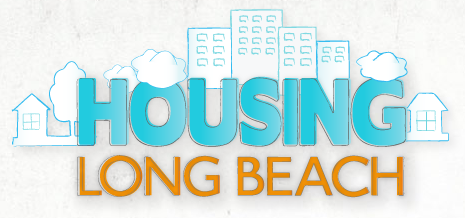by Kerry Gallagher | Budgets are a response to our current needs, but they also act as a road map for the future. Budgets also reflect our values. Each year, the City must pass a budget that addresses the existing needs of its residents and plan for the coming years as well. This can be difficult, especially when the immediacy of certain issues overshadows the importance of long-term planning.
If community needs are ignored, they find their way back to haunt us, often in far more expensive ways than the original cost. Infrastructure issues ignored lead to far more pricey solutions later; affordable housing production needs gone ignored lead to public safety issues, health issues and a significantly reduced quality of life for Long Beach residents. Investment in the development of quality, affordable housing is an investment in the current and future health of our residents.
Creating and preserving housing affordability in Long Beach is not just a moral or health concern; it’s an economic imperative. When families are paying more than 30% of their income on housing, which is the widely accepted standard for determining whether housing is affordable, they are unable to meet other basic needs such as food and medical expenses. Prioritizing the development of quality housing that is affordable to our residents will stimulate economic growth in Long Beach. In fact, if the City were to meet its existing need for 4,000 affordable homes for current residents, it would generate more than $14M annually from cost savings on rent, which would be spent in our local economy.
The loss of redevelopment agencies, which were legally required to set aside 20% of funds for affordable housing, severely limited new housing development affordable to Long Beach residents. But even with the demise of redevelopment and the subsequent loss of $25M annually for affordable housing, the local property tax increment that once generated income for the City remains intact.
Unfortunately, these local funds no longer support Long Beach’s economic and housing investment efforts as the tax increment currently goes to the State. Each year, after the State balances their budget, the remainder of this increment is returned to the City from which it came, without any restrictions. Therefore, it is placed in the general fund. However, it is critical that a portion of this tax increment money – also known as Boomerang funds – be set aside for affordable housing development. Just as the City utilizes proportional cuts, it should also utilize proportional re-funding. Therefore, 20% of boomerang funds should be dedicated in the City’s budget to the development of housing that is affordable to Long Beach residents.
A few years back, the City borrowed money from the redevelopment 20% housing set-aside, and it is now legally required to pay this money back. The $24.7M that the Mayor is currently proposing for housing is the debt obligation that the City owes to itself. This money is the first step towards paying back our debt to the housing fund, and we commend this responsible effort. At the same time, it must be noted that this is a legal requirement that has come due, not a proposal, and the City must still proactively find ways to create a permanent local source of funds to invest in affordable homes.
We urge the Mayor and the City Council to budget in a responsible manner that reflects the critical housing needs of Long Beach residents. We cannot thrive as a city if we ignore the health and safety of Long Beach residents who need safe and affordable places to live. Too many working families are playing by the rules, but still cannot find an affordable home in Long Beach. The City can take one step forward to addressing this crisis if it sets aside 20% of boomerang funds for affordable housing.
Kerry Gallagher is the Executive Director of Housing Long Beach. She received her undergraduate degree at Azusa Pacific University in Communication and Media Studies and her Master’s degree from Goldsmith’s College in London in Cultural Studies.

